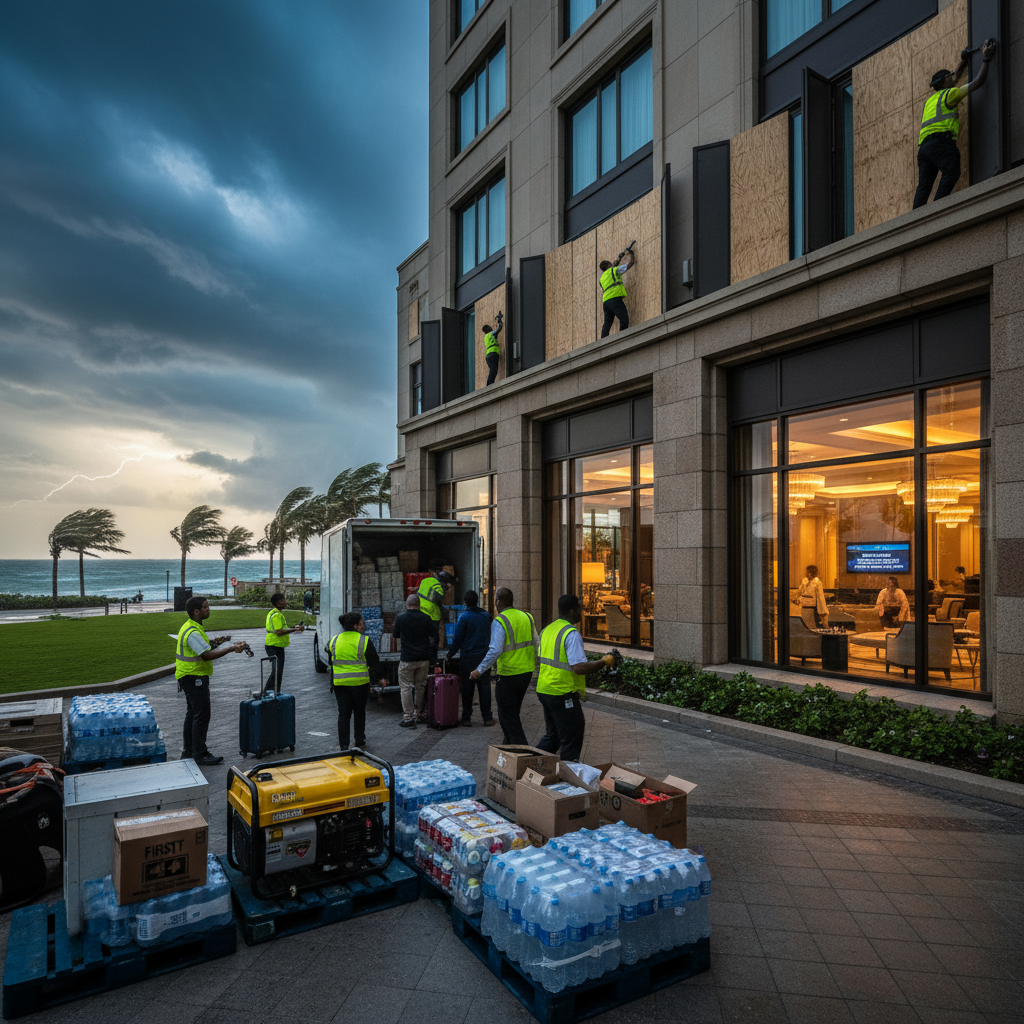Preparing Your Hotel for Extreme Weather Events
In an era of increasing climate volatility, hotels across the United States must prioritize proactive preparedness for extreme weather events. Recent events, such as the severe flooding witnessed in Hong Kong due to Typhoon Ragasa, serve as a stark reminder of the potential devastation these occurrences can inflict. Safeguarding your guests, staff, and property demands comprehensive planning and robust mitigation strategies.
Risk Assessment and Contingency Planning
The first step in preparedness is a thorough risk assessment. Identify the specific weather-related threats most likely to impact your hotel’s location. These could include hurricanes, floods, wildfires, severe winter storms, or extreme heat waves. Once you’ve identified the risks, develop detailed contingency plans for each scenario. These plans should outline procedures for evacuation, sheltering in place, securing the property, and maintaining essential services.
Infrastructure Reinforcement and Property Protection
Investing in infrastructure improvements can significantly enhance your hotel’s resilience. Consider measures such as reinforcing roofs, installing flood barriers, upgrading drainage systems, and ensuring backup power generation. Secure outdoor furniture and equipment to prevent damage from high winds. Review your insurance coverage to ensure it adequately protects against potential losses from extreme weather events.
Guest and Staff Communication
Establish clear communication protocols to keep guests and staff informed during emergencies. This includes implementing a reliable emergency alert system that can deliver timely warnings and instructions. Train staff on emergency procedures, including evacuation routes, first aid, and guest support. Provide guests with informational materials on local weather hazards and safety guidelines upon arrival.
Emergency Supplies and Resources
Maintain an adequate supply of emergency provisions, including food, water, first-aid supplies, blankets, and flashlights. Ensure that backup power sources are readily available and properly maintained. Establish relationships with local emergency response agencies and community organizations to coordinate support during disasters.
Post-Event Recovery and Business Continuity
Develop a plan for post-event recovery to minimize business disruption. This includes procedures for assessing damage, restoring services, and communicating with guests and staff. Consider implementing business continuity strategies such as remote work options and alternative supply chains to maintain operations during emergencies. Regular drills and plan updates are vital for effectiveness.
By implementing these strategies, hotel managers can significantly reduce the impact of extreme weather events, protect their guests and staff, and ensure the long-term sustainability of their businesses.
Source: nbcnews.com




